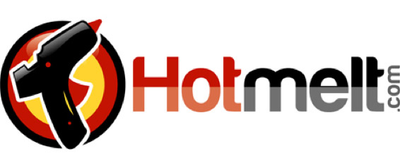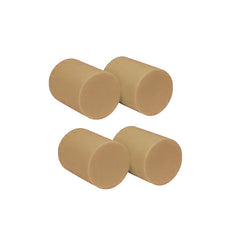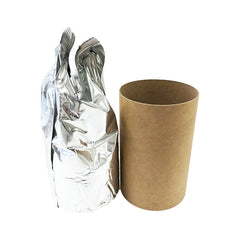What is Polyurethane PUR Hot Melt?
Polyurethane hot melt, commonly called PUR hot melt, is an adhesive that is heated and dispensed from a cartridge or slug using a heated gun or piece of bulk dispensing equipment. In comparison, traditional hot melt comes in stick or pellet form. PUR is also unique because it solidifies through moisture in the air to form a strong bond that will not re-melt.
Because of its strength, durability, and fast set time, PUR is ideal for a wide variety of applications in woodworking, finish carpentry, shoe repair, furniture repair, broken glassware repair, laminate countertops, construction and remodeling, and more. It is also simple to dispense, cost effective and bonds to a lot of different substrates.
PUR Hot Melt Uses
Polyurethane hot melt uses expand into a lot of manufacturing and product assembly applications across the world. Applications for PUR adhesives often involve strong bonds to wood, plastics, fabrics, leather and many other materials. They are becoming increasingly popular because of how versatile they are.
PUR can be applied as a bead or sprayed for covering large surface areas. These adhesives also come in a wide range of open times and viscosities allowing them to cater to specific application needs.
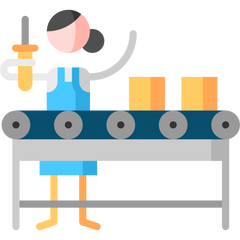 |
Common Applications for PUR Hot Melt
|
The Difference Between PUR Hot Melt and Regular Hot Melt
Traditional Hot Melt Bonds
The biggest difference between PUR hot melt and traditional hot melt is the type of bond they create. Think of a traditional hot melt bond as a wax bond. You heat it up until it becomes liquid, apply it , and stick your two parts together.
If you were to heat the parts back up, it would become liquid again and you could easily take the substrates apart. This isn't to say there aren't some very strong hot melt adhesives out there; this is just how the chemistry works.
Polyurethane (PUR) Hot Melt Bonds
PUR hot melt is different than traditional hot melt in the bonds that it forms. It is dispensed in the same way with the adhesive being heated to a liquid state for application. But as it cools, PUR hot melt reacts with moisture in the air and changes chemically to create an incredibly strong bond. This bond then continues to strengthen over 24-48 hours until it is fully cured and super strong.
Check out this tensile strength test between traditional hot melt adhesives and PUR hot melt adhesives:
 |
Benefits of PUR Adhesives
|
Drawbacks of PUR Hot Melt
Up until this point it's been all roses and unicorns, but we're here to tell you there are some drawbacks to PUR hot melts. Remember that chemical change we talked about that gives PUR its strength and durability? Well, that chemical change that makes PUR the "Andre the Giant" of hot melts also comes with some downsides.
Because PUR hot melt reacts with moisture in the air, it must also be protected from moisture before it is used. This means it has to be packaged in airtight cartridges or foil and cannot be exposed before use. It also means that PUR hot melt carries a shelf life of around 12 months (traditional hot melts have none).
To modify a quote from Spiderman, “With great bonds comes great responsibility.” And this responsibility is a more difficult cleaning process. Large equipment used to dispense PUR must be cleaned and purged regularly with PUR hot melt cleaner because after the adhesive sets, it is very difficult to remove. This is not as big of a problem with cartridge-based adhesives as there are disposable nozzles that eliminate the need to purge and clean them.
 |
Drawbacks of PUR Adhesives
|
Applying PUR Hot Melt
PUR hot melt can be dispensed either from PUR cartridge guns or from bulk equipment. Choosing what system is best for you will depend on your application and the volume being dispensed.
Using Cartridge Systems
More popular than ever is dispensing PUR from smaller, less expensive cartridge guns. These easy-to-use dispensing systems are affordable and aren’t tethered to bulky melters that hinder movement and application freedom. Infinity PUR cartridges are available in 50 gram and 10 ounce sizes and work with all standard cartridge guns.
50 Gram Cartridge Systems
The 50 gram PUR hot melt cartridges offer a low cost and simple way to dispense PUR. These systems are often used for woodworking, light product assembly and repairs.
50 Gram PUR System Benefits
|
 |
10 Ounce Cartridge Systems
10 ounce PUR cartridge systems allow for higher output and more adhesive choices. The adhesive applicators are more expensive but still more affordable than large bulk dispensing systems. These applicators also connect to an air compressor allowing for effortless air-powered dispensing. They are available in both bead dispensing and spray dispensing options.
10 Ounce PUR System Benefits
|
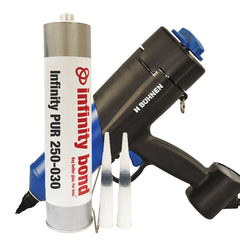 |
Using Bulk PUR Adhesive Systems
Bulk PUR hot melt adhesives require large, industrial equipment. They are a great option for automated or extremely high-volume dispensing applications. There are equipment drawbacks in terms of cost and maintenance but also cost savings using PUR in bulk sizes. The two most common bulk sizes are HOLZ-HER slugs used in edgebanding equipment and foil-wrapped slugs used in high volume and automated PUR equipment. Bulk PUR can also allow for more formulation options as it is less difficult to manufacture and pack.
HOLZ-HER SlugsFor HOLZ-HER Edgebanding Machines
|
Bulk PUR SlugsFor Bulk PUR Dispensing Systems
|
Just a Little More PUR Information
We hope this overview has been helpful and you now better understand PUR hot melts applications as well as how they are dispensed.
As always, our adhesive experts are available to answer any questions you have. We're happy to provide product recommendations, discuss applications, or create a custom quote based on your needs.
